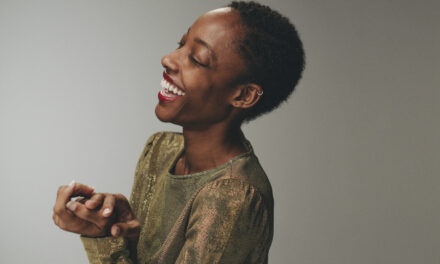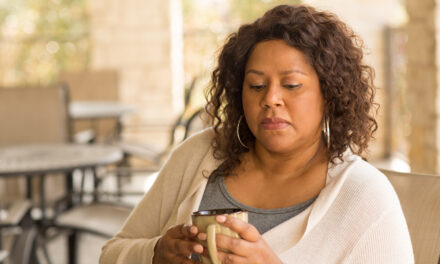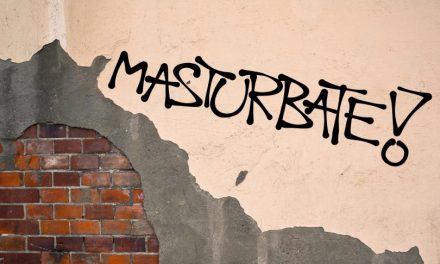I recently ended a rather intense relationship with someone who had been such a huge part of my life for the past few years. I wouldn’t exactly class what we had as a normal relationship; it didn’t fit into the mould of what a normal relationship is supposed to be, nor was it ever really defined. It wasn’t also always sexual in its nature, there were long moments where we cultivated a friendship which was at some points more important than anything we shared. While the decision to part ways was a mutual one, where we sat, talked and chose to part ways, it still hurts more than it was expected to.
I spent about a week or so crying after the end of this “relationship”. I cried partly because I missed him terribly, but also, I cried for me, for the loss of a good friend and for the loss of a love, that to me transcended the normal boundaries of societal expectations. For the most part, our relationship had been positive, although it had also had its share of harrowing moments of pain and hurt.
I always felt guilty for knowing better than hanging around him but doing it anyway. As a feminist, you’re supposed to have all the answers when it comes to what is healthy and what isn’t when it comes to a relationship, right? So it was a conflict. Knowing what you deserve, foregoing that in favour of thrilling uncertainty and a deep physical connection that surprisingly had very little to do with sex, and deciding that being hurt eventually was going to be worth it, goes against everything feminism teaches us. But one of the biggest lessons I learned in this period is that life is not black and white.
Letting him go didn’t change how I felt about him…
Imagine someone who is your biggest fan and critic, who understands what you’re about, even if they don’t understand you completely, who is willing to make certain uncomfortable choices to make you happy but cannot fully commit to you. Imagine you, being in a place where you don’t want to know anyone else, because you’re exhausted, having strong feelings which you’re not sure is wise to act on and forming a bond which you know will ultimately be your downfall. That was us. A combustible combination of chemicals which never should have mixed.
I don’t regret knowing this person and we aren’t completely out of each other’s lives; we just redefined our boundaries but it still didn’t stop my heart from breaking into a million pieces, the moment we realised we could not continue in this pseudo-relationship. It’s has been a harrowing experience which is only second to how it felt the first time we actually properly broke up from what our previous relationship was.
There are so many lessons I learned that I hope ultimately make me a better person and a better partner when I am ready to date. It’s not enough to look out for red flags, you have to be completely compatible with someone. They have to get you; your jokes, your flaws, your shortcomings and strengths and they have fo be willing to accept them. After a certain age, people are set in their ways—but only to an extent—people CAN still change parts of themselves for the ones who really matter to them.
So where do I go from here...
Love can be complicated and that’s okay. You’re not always going to find things as straight forward as you’d like. People come with their own realities and you have to navigate that, the same way they have to navigate yours. Ultimately, if two people aren’t willing to be participants in each other’s realties it will not work. I don’t know how long I’ll grieve for, but I’m open to it. The most empowering thing about my grief is being mature enough to understand that I’m not doing it for the other person, but for myself. I grief knowing that it’s light at the end of the tunnel. It’s the realisation that I’m not as jaded as I thought and I can still bleed, which means I still have the capacity for deep connections and even deeper love. Because sometimes love sucks, and we have to learn how to deal with it.






Thero Molefe A.K.A Thero Thato Mathambo : The tragic and Chaotic true life story of self-proclaimed born-feminist
This article was prompted by the fact that the individual mentioned above has a tendency to write pieces in the world wide web about feminism, being a born feminist and women empowerment, and likes giving her life experiences as suitable examples. Most her of writings are posted on FemiInstyle. The article I am replying to, bear the hallmarks of her story line.
I will be narrating the incidents to a third person but at times I will direct the statements directly to the self-styled feminist herself since I will ensure this article reaches her. In the accounts that she gives about the deterioration and reasons for the ending of her marriage; she portrays herself as an innocent victim of patriarchy while her husband is made out to be an unapologetic adulterer. Adultery on the part of the husband is her supposed reason for walking out of the marriage. She does not in any way shape or form accept blame for making wrong or unwise decisions, whose repercussions may not have been immediate but are now showing up in her later adult life.
I am going to set the record straight and give the true version of her life story in relation to the accounts she regularly puts out on FemInstyle, to illustrate the responsibility she should account for, for the ending of her marriage and current life situation. As a person, Thero is one of the most beautiful women in the world, an intelligent, excellent writer and a polite person. It would not have been wrong to expect nothing but the best in everything she did, but as will be seen, life is full of surprises.
Thero met her future husband during the early days of her national service, Tirelo Sechaba(T.S). It was in 1996, she was 18 years old and the future husband was 26 years of age. The man had already graduated, was working, had a car and living in a caravan with full amenities, provided by his company at the field work site. From the onset there was a visionary mismatch, on the one hand you had a young girl who still had to figure out what she wanted to be in life, carrier-wise, on the other hand you had a mature man who was working and had everything finance-wise. Thero states in one of her articles that she thought she had found a soulmate! At the life-stage she was at, the appropriate term to use is soul-plate, because despite whatever she says, his financial standing was very much attractive to anyone who had eyes to see.
I have a hypothetical question; do you think a working mature man would be romantically loyal a teenage girl, without a career or a job. The answer is a big NO. I imagine if that said man was with his age-mates and they were discussing their partners: he would be commended for having bagged a young beautiful, none troublesome thing; the minute he adds that it is his only girl and that he is loyal to her only, he would be laughed at. He would have been ridiculed, as to why be loyal to some small girl under the chaperonage of a host family in a very rural setting when you know you can go grab her at any time, “have a goodnight” and provide her with luxuries beyond her wildest dreams in order to impress her. Believe you me that is the psyche of older men who date young school age girls. Such men know where their power lie. In any society men have a penchant to cheat , it is more likely so if their partner is some naïve school age girl, (by school I mean college and University). I believe Thero had the same answer to our hypothetical question. She knew that, by his financial standing, the man had to have someone if not other women in his life when they met. Despite all these facts she was mesmerized and impressed by the additional cash she was given to supplement her meager TS allowance, not to mention the grocery shopping trips and evenings of watching DSTV in the man’s company caravan. She used to wax lyrical about the big house you see when you enter Mahalapye, when giving directions to her mature man boyfriend’s parents’ house, or how her boyfriend is doing a course in Ireland.
Logic dictates that everyone from the age of 6 to 25 should be engaged in efforts to gain an education or skill to eventually join the work force. Basically to find their position in the future. I believe after meeting him Thero made a conscious and final decision to be a wife and a mother. That was her ultimate goal at expense of any other ambitions in life. She knew being a mother to the man’s child or his wife she would be financially secure despite her being without a job or tertiary education. Thus within two years of meeting him, while her age-mates were doing age appropriate things like partying and studying in different colleges, Thero chose to become pregnant in about 1998.Kindly note that she knew the older man boyfriend was cheating (remember the hypothetical question’s answer, Also don’t look any further just refer to the article I am replying to).Her naïve mind thought the pregnancy would bring them closer together and she was truly banking on the resultant child to be used as leverage to coerce him into marriage. To some extent she was right, because a man will marry you out of fear of losing his children. Infect he did marry her in about 2004.
Due to her ultimate goal being to get married, Thero made halfhearted attempts at educational attainment. In 2003 she was sent (child an all) by her adoptive mother to study in Australia (an expensive undertaking indeed), but in 2004 she abruptly returned at the promise of her much anticipated marriage by the man. Alas! she got her lifelong wish and got married. Another halfhearted attempt at studying saw her waste a period from August 2004 to September 2005 at the university of Botswana. She withdrew to assume her wifely duties. It is clear her educational goals were conflicting with her domestic role for which she had commit her life. All this was done with her full knowledge of the answer to our hypothetical question. As can be seen, Thero chose to be fed and taken care of by a man by the time she became a legal woman, she did not take up any chance presented to her to empower herself financially. With this fact she should not label herself a born feminist the way she usually does in her articles. That is misleading.
Being a house wife and having so much free time at her disposal, she did get a degree in 2014 at a ripe old age of 36(congratulations are in order here). She got her first real pensionable job at Sefalana in 2016.She left Sefalana in June 2018 and became a Manager at HIFI Corporation, a job she eventually left in 2019.
In her article in femInstyle, She indicates that she ‘left her jobs because even though they paid good, they were not her passion’’. She failed to add that after she lost her marriage based lively hood, she had to resort to being a furniture sales person at Bears, a fact she strategically omits from her much embellished C.V.
She claims that the corona virus lockdown was the catalyst of her marriage breaking down,’’as like many others’’. She is wrong here; many other unions did not break down like hers but were rather strengthened. Relationships which were strained by one partner having to stay long periods away from the matrimonial home were strengthened by the close proximity of partners for the longest period in their time together. Infect the lockdown produced many offspring and renewal of marriage vows.
The dear ex-husband will attest to the fact that despite her unwillingness to work, she was an irresponsible spend-thrift. He was deeply aggrieved by the fact that after he bought her a very expensive jeep, she chose not to appreciate his gesture of affection, but sold it for no justifiable cause. She is said to have then proceeded to pay people to dismantle a perfect and structurally sound house belonging to her own adoptive mother. To this day after paying people to tear down the house, she has no source of income to put it back together again. After having extorted money from her adoptive mother in your younger days, one hopes that at least being older and wiser she would be ashamed to go back to the adoptive mother and ask for money to fix the mess that she made of her house. When talking about the reckless house destruction in one of her articles, she unashamedly mention “renovating my house.” The fact is, the house is not hers, it belongs to her adoptive mother and she is very much alive. The way she behaves, one can only conclude that she may be wishing, the adoptive mother were dead so that she may commandeer her insurance funds and more of her property. Remember,Thero, you have adoptive siblings who deserve and equal share if not more, of your adoptive mothers estate. I say they deserve more taking cognizance of the fact that you have already squandered the finical support given you to attend private schools and overseas colledges. You were married off to another family, do you realize that, in future if you were to die (God forbid) and any property bequeathed to you, by the adoptive mother, will be given to one of your sons. The complication is that, if the son and younger brother both die (God forbid), their properties as the Molefes will go to their father if he is still alive, that is if they don’t have any offspring and wife of their own. Thero see how your life is a complication. Complications done by you. You cannot marry a man for material things in exchange for your subjugation and then later on try to changes those terms. It is unfair on the children, you had long forsaken your autonomy at the start of your relationship, why try to change now and ruin it with this feminist streak that you suddenly developed.
At a certain time Thero is said to have used part of the proceeds of the sale of the Jeep to organize a rap battle party. It is said that Eminem’s 8-mile movie rap battles have no comparison to what transpired. All youngsters from far and wide are said to have gathered (I think it was at Mogobe plaza) in their tattooed bodies, with bandanas, tight T-shirts and tight sagging pants. I am reliably told the husband was incensed by the orgy. But I blame the ex-husband on this one, because this was a clear case of mid-life crisis, this is time when older people try and catch up on youthful activities they missed on. The ex-husband is the one who barred her from doing youth age appropriate activities when she was young, but rather opted for her to bear and raise children quietly at home.
Going back to the torn down house, the husband was highly aggrieved because she was taking the family investment and putting it into her own adoptive mother’s project. That was wrong and it put a lot strain in the marriage. The last straw on the camel’s back was the Covid 19 lockdown. It was not the husband’s infidelity as she tries put across, but rather because dear hubby depended on tenders and during lock down there was no steady money coming in. The golden egg goose was not laying, so that was intolerable to Thero. Despite her vows of for richer or for poorer, she chose to jump ship. Infidelity on the part of the husband was not the reason for her divorce but rather the fact that he was not giving the financial support she felt she deserved. Especially funds to fix the house she destroyed without an income. She knew about the infidelity a long time back had learnt to live with it.
She wrote that she was unwilling to revert back to her maiden surname, Mathambo because of the strain it will cause on her to have different surname to that of her children. Thero kindly note that you are not your children. The blood that flows in their veins is not yours. When they die(Godforbid) they are to be buried in Mahalapye, because they have been paid for. You being damaged goods were sent back to sender (I am not ridiculing you but rather showing you that you are the one who allowed yourself to be commodified). Being reluctant to change back to your original name, to borrow some famous words, YOU ARE CLINGING ON TO HIM. The woman that he is going to find or finally marry would not approve of that. Stop writing articles about you being mistreated, you brought this up on yourself by not being financially independent in the first place and then choose not tobe be subservient as at time of you first met your ex-husband. You made your bed now lie on it. Accept that you have reached your sell by date, change back to your maiden name, move on, and have your own life as Thero Thato Mathambo.